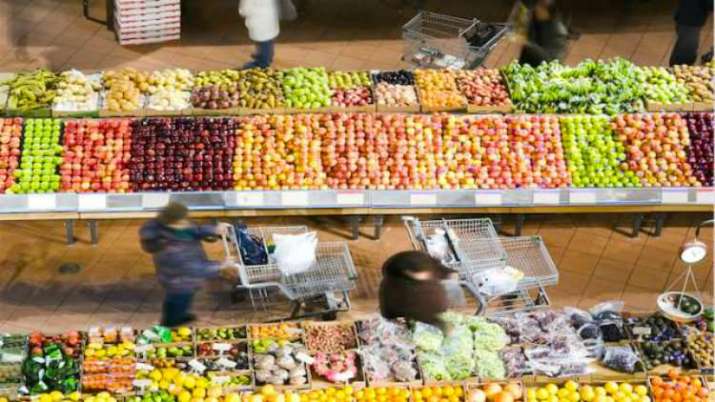
With a landmark study published last week by the journal Science presenting compelling evidence that avoiding meat and dairy products is single biggest way individual people can reduce their environmental impact on the planet, recent media reports indicate a corresponding paradigm shift is taking place in China—the world’s largest market for beef, pork, and poultry products—where health- and environmentally aware people are turning to meat-free diets in growing numbers.
Meat consumption in the 20th century China was a rare luxury for many people, and as the country grew more prosperous a meat-heavy diet became a sign of prosperity. By last year, China was eating significantly more meat than any other country at 74 million tonnes of pork, beef and poultry—around double that of the United States. However, a growing segment of the population is rejecting the traditional preference for meat-based diets, with a report by China’s Xinhua news Agency, estimating the number of vegetarians in the country now exceeds 50 million.
According to the analysis published in Science, based on data from some 40,000 farms in 119 countries, the loss of wild areas to the ingresses of agriculture is currently the leading cause of wildlife mass extinction, and eliminating meat and dairy consumption could reduce global farmland use by more than 75 per cent while continuing to feed the world. The meat and dairy industries, meanwhile, are also responsible for 60 per cent of agricultural greenhouse gas emissions. Home to roughly 1.4 billion people, China is the world’s most populous nation, accounting for 18.2 per cent of the world’s population, suggesting that a trend toward vegetarianism there could have a proportionally significant global impact.

“A vegan diet is probably the single biggest way to reduce your impact on planet Earth, not just greenhouse gases, but global acidification, eutrophication, land use, and water use,” said Joseph Poore lead author of the study. “It is far bigger than cutting down on your flights or buying an electric car.” (Independent)
According to Shanghai-based artist Han Lili, who has tracked vegetarian and vegan restaurants in major Chinese cities including Beijing, Chengdu, Lhasa, and Hong Kong, the number of vegan restaurants in China’s largest city, Shanghai, has more than doubled from 49 in 2012 to more than 100 last year.
Data collected by China’s largest search engine, Baidu, provides corroborating evidence: 30 per cent of China’s vegetarian population are young educated people aged 20–29—a generation who recognizes the devastating impact human activity can have on the planet, having grown up in heavily polluted urban environments.
“Times have really changed,” Vegan Chinese pop singer Long Kuan asserted. “Maybe 10 years ago, when I was a vegetarian, a lot of people said, ‘Why, are you Buddhist?’ or something. But now, it’s completely different. The young generation especially, they love to be eco-friendly and they love to be compassionate. And they really care about the environment and the quality of life, about pollution . . . they really care about fellow creatures on this planet, animals, and even trees.” (Care2)

And while China remains the world’s largest market for animal flesh, research firm Euromonitor has stated in a report that demand has declined in recent years, with data from Chinadialogue.net pointing to a marked decline in pork sales from 42.49 million tonnes in 2014 to 40.85 million tonnes in 2016.
Baiyi Shushi Co. CEO He Jun became an early convert of China’s vegan trend after being exposed to Buddhism in 2011. He adopted what he describes as a “self-responsible” lifestyle, and converted his company’s restaurants into vegan eateries. “The general concept of healthy food is penetrating throughout society and people’s lives are greatly improved,” he said. (XinhuaNet)
Indeed, another study has projected the vegan market in China to rise by more than 17 per cent from 2015–20, suggesting a significant shift is taking place in consumer awareness.
“There are definitely more people in China becoming vegetarian,” said Keith Guo, of animal rights group People for the Ethical Treatment of Animals (PETA). “As more people learn that animals suffer daily on factory farms, the number of vegetarians continues to grow. And more cities are becoming vegan-friendly—last year, Shanghai, Taipei, and Hong Kong landed spots on PETA’s list of the ‘Top 10 Vegan-Friendly Cities in Asia.’” (Time Out Beijing)

According to data from the Food and Agriculture Organization of the United Nations (FAO), people who live in developed economies eat roughly 95 kilograms of meat per year. In the developing world, consumption is closer to 30 kilograms per year and climbing rapidly—by 2030, average meat consumption per person is projected to be almost 45 kilograms per year, 10 per cent more than today. And with the global population projected to reach a staggering 10 billion people by 2050, the outcome is an estimated 70 per cent increase in demand for food over the next 34 years, according to a recent report by the World Resources Institute (WRI),* while increasing urbanization in emerging economies points to strong growth in demand for resource-intensive foods, such as meat and dairy products.
* World Resources Institute Report Underscores Heavy Environmental Impact of Meat Industry (Buddhistdoor Global)
See more
China going vegan? Massive decline in meat consumption, vegetarian restaurants double in 5 years in Shanghai (Financial Express)
A large number of Chinese are giving up meat and turning vegetarian. Here’s why (Hindustan Times)
China gets ready to go veggie (XinhuaNet)
What’s Convincing 50 Million Chinese People to Go Vegetarian? (Care2)
Life on the veg: the rise of vegetarianism in China (Time Out Beijing)
Reducing food’s environmental impacts through producers and consumers (Science)
VEGANISM IS ‘SINGLE BIGGEST WAY’ TO REDUCE OUR ENVIRONMENTAL IMPACT ON PLANET, STUDY FINDS (Independent)
SHIFTING DIETS FOR A SUSTAINABLE FOOD FUTURE (World Resources Institute)
Livestock’s Long Shadow: Environmental Issues and Options (Food and Agriculture Organization of the United Nations)












